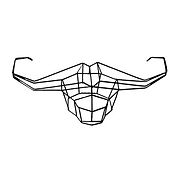Robert Pfaller
When examining the question of what makes humor possible, Sigmund Freud comes up with a surprise candidate: the superego. Freud argues that humor requires the elevated position of the superego in order for us to be able to look down upon ourselves, upon our ego, in an amused and loving manner. This betrays superego’s descent from the parental authority. Hence, what we laugh about is what we love. And yet, what we love is not exactly our ego, but rather, as Freud points out, that which this ego was at some earlier stage. The object of our humor is something below or left behind, something above which we, due to our development, believe to have elevated (erhoben, if not aufgehoben) ourselves. The thing we lovingly smile at or laugh about is a particularly low thing, situated in intellectual and moral respects well below the ego. Despite these deficits, we have to regard this low thing not only as an object, but also as an agency of observation: a view from below that exerts certain ethical requirements upon the ego, just as the superego does from above. We should acknowledge this agency by naming it the sub-ego. Sub-ego’s lower observation is, I argue, key to understanding humor. Looking at sub-ego’s vicissitudes in cultural history will also allow us to question Hegel’s notion of Aufhebung as well as the Lacanian understanding of sublimation.
Concept/s: Hegel's Aesthetics
11 to 14 January 2018
Museum of Modern Art, MG+, Cankarjeva 15, Ljubljana
For more information see: http://www.mg-lj.si/en/events/1917/conference-concepts-hegels-aesthetics/
